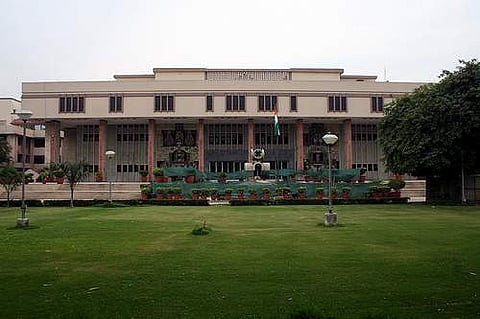

The Delhi High Court (HC) has instructed the city government to establish a high-powered committee for overseeing the implementation of the recommendations and guidelines of the sixth and seventh Central Pay Commission (CPC) concerning salaries and arrears for staff in private unaided schools and recognised private unaided minority schools in the region, reports PTI.
Describing education as an "invincible weapon" for empowering the next generation, the court emphasised the need for regulatory control to ensure a uniform quality of education across the country, states the report. The committee, to be formed at both Central and Zonal levels, will address grievances from teaching and non-teaching staff, said the HC.
The court also mandated the Directorate of Education (DoE) to issue a notification within two weeks for convening a zonal committee, where stakeholders aggrieved by the non-non-implementation of the Pay Commission, shall file their claim before the panel. The committee is tasked with devising a mechanism to ensure staff receive their dues, even if schools lack the necessary funds, as per the reports by PTI.
“This court observes that it is a sorry state of affairs that the staff of the school instead of contributing towards the education of the children, are before this court seeking payment of their salary and emoluments as per Pay Commissions recommendations, which they are duly entitled to,” Justice Chandra Dhari Singh said.
The court's 136-page judgement stemmed from petitions by staff in private unaided schools and recognised private unaided minority schools, seeking benefits of the sixth and seventh CPC along with arrears and retirement benefits.
While acknowledging previous court judgments on Pay Commission recommendations, the court noted that financial constraints prevented schools from implementing them.
“The main reason for non-implementation of the Pay Commission is that the schools have not been able to hike the fee. The regulating authority, that is, DoE is also not able to ensure there is implementation of the recommendations of the Pay Commission since the DoE can only derecognise school in case there is non-compliance with its order. De-recognition of the school is not always the ideal situation as the same would affect the children studying in the school and employment of the staff of the school. Therefore, directing DoE to ensure there is implementation of pay commission recommendation by de-recognition of school is not the best solution to the issues,” Justice Singh said.
he court upheld the validity of the petitioners' grievances, stating that non-compliance with the DoE's notification on the implementation of the 7th CPC violated their constitutional rights. On the question of whether unaided minority schools are obligated to implement the recommendations, the court said that staff in such schools are entitled to salaries and emoluments comparable to those in schools owned by competent authorities.
“Education is an invincible weapon for empowering the next generation of the nation and … regulating authority has to exercise certain control to ensure that uniform quality of education is provided to every student of the country. The aspect of autonomy in administration of unaided or aided schools, therefore, does not come into play since the state has to ensure there is quality education provided to the children. Hence, the unaided minority schools are bound by certain regulations of the appropriate authority,” it said.
It further stressed that schools must guarantee adequate compensation to their staff, as decent salaries act as motivating factors for teachers to impart quality education to future generations.
